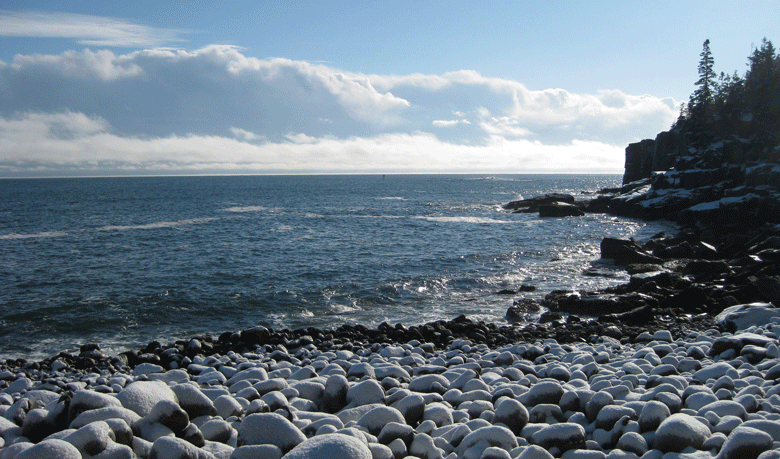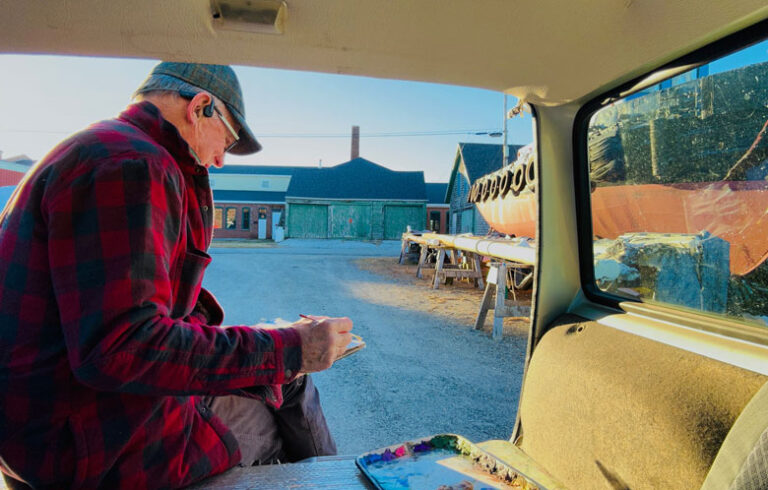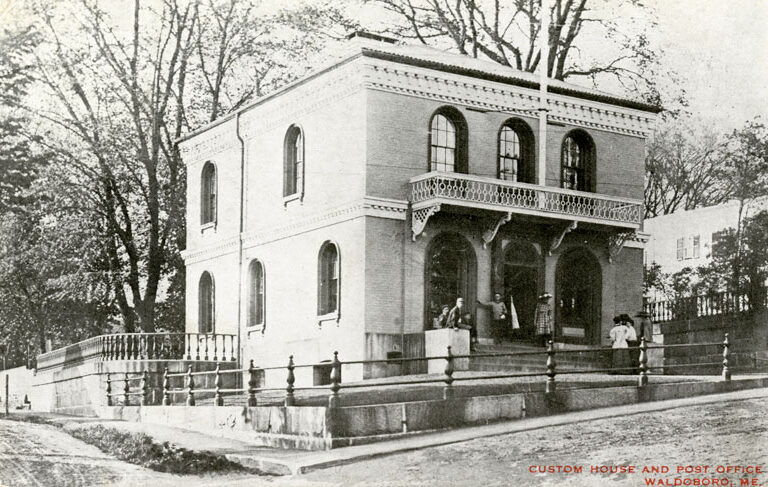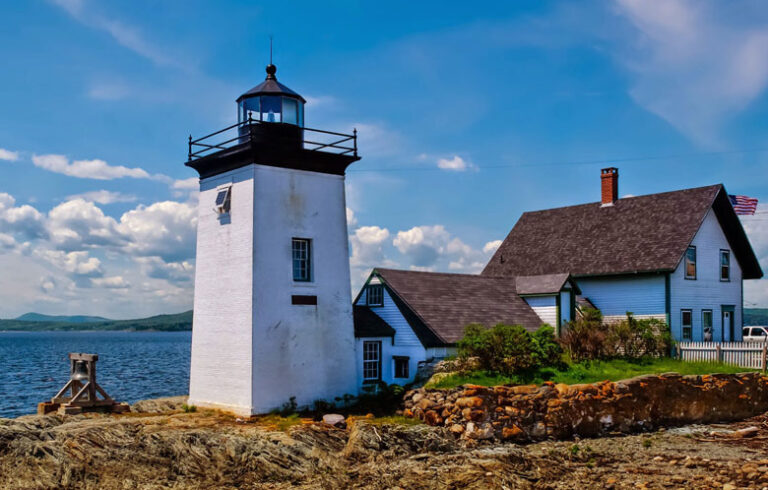Reflections is written by Island Fellows, recent college grads who do community service work on Maine islands and in coastal communities through the Island Institute, publisher of The Working Waterfront.
The tide laps at the narrow road that joins Mount Desert Island to the mainland. Traffic jostles in the mist. All my life, I have lived in places heartbreakingly vulnerable to climate change.
My new home in Tremont, on the island’s “quiet side,” is no different. Like my hometown of Wilmington, N.C., MDI’s coast is its lifeblood—a coast already battered by rising seas, worsening storms, and crumbling infrastructure. But as an Island Fellow working with A Climate to Thrive, I see this community rising to the call for transformation.
A Climate to Thrive (ACTT) came to be because neighbors at a potluck started talking about climate change. That gathering gave rise to a nonprofit that has increased the island’s solar by seven times, pursuing energy independence for MDI by 2030. But community-driven climate action is about more than just watts on the grid: ACTT also knows that how we transition off fossil fuels matters—transition can be an opportunity to build empowered, equitable, collaborative, and resilient communities. When neighbors talk to neighbors, focused on solutions, we build momentum by connecting based on what we value.
This is our model: start at home, then share as widely possible.
That idea is the heart of our Climate Ambassadors program, where on Wednesday evenings in the library, retirees, teenagers, business owners, church leaders, and others gather around a table, exploring their contributions to climate action. We talk about the powerful spark of impact at the intersection of the climate’s needs, your skills, and your sources of joy. Climate Ambassadors shake off despair by cultivating and empowering that spark. The MDI pilot launched this fall, and starting Jan. 12th, we’ll take what we’ve learned statewide in a six-session training that’s free, virtual, and open to the public. Join us: www.aclimatetothrive.org/ambassadors.
This is our model: start at home, then share as widely possible. Our Local Leads the Way series exemplifies this. Launched in November 2021, the initiative brings together community-driven climate action groups (and those interested in starting a group) from throughout Maine to build networks of collaboration and support, share resources, engage in trainings, and reduce duplication of effort.

Local Leads the Way meets virtually the first Monday of each month at 4 p.m.; anyone is welcome to join: www.aclimatetothrive.org/localleadstheway. Across Maine, we’re all grappling with different landfalls of the same big storm and we need all the help we can get.
The stakes are unspeakably high. But that’s never an excuse for steamrolling over our neighbors, or leaving the most vulnerable among us behind. It’s also never a reason to give in to despair.
It can be so tempting to try to reach people by talking about what will happen if we fail—the real but paralyzing realities of neighbors cut off from emergency services, lost jobs, a landscape of ecological loss. But that is not and cannot be the full story.
This small island is transforming, not just out of fear or necessity, but out of drive, purpose, and compassion, asking not just how to avert disaster, but how to create abundance.
What does our island look like in 50 years, in a world where our choices have cut carbon emissions, re-centered equity, conservation, local food, and energy production? What precious things will we have saved, and what will we have created in the process? Thanks to my new neighbors, I live in hope of that possible future. I’m honored to work towards it every day.
Brianna Cunliffe works with ACTT on Mount Desert Island focusing on education and community-based climate action. She has worked with the National Parks Service, Appalachian Trail Conservancy, and Dogwood Alliance, and recently graduated from Bowdoin College with a degree in environmental studies and government.





